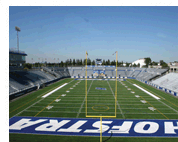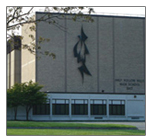From Basketball To The Hollywood Spotlight
Krekor Ohanian, Jr., was from California. His parents were Armenian, with his father an attorney who represented many from the home country who had little money and barely spoke English.
Krekor became an avid basketball fan. He was a good player in high school. Teammates called him “Touch,” because he always liked to touch the ball. Upon graduation, Krekor enlisted in the U.S. Army Air Forces during World War II. Following the war, he attended the University of California at Los Angeles on the G.I. Bill and a basketball scholarship. He played for legendary coach John Wooden.
Though he had decided to attend law school and follow his farther into the profession, a basketball game caused him to change direction. Eventually, he landed in the Hollywood spotlight. Following one of UCLA’s games, Krekor was introduced to William A. Wellman. The film director liked the young man’s voice and his expressive face as he played the game. He encouraged Krekor to consider an acting career.
Placing law school on the bench for at least a while, Krekor explored the suggestion and found himself taking various roles in films and television programs. Eventually, he would star in a television series of his own, relying on his athletic ability to perform his own stunts despite breaking a wrist and dislocating a shoulder in the pilot episode. His character, “Joe,” was depicted as an Armenian-American. Krekor occasionally spoke Armenian in several episodes and sometimes he quoted Armenian proverbs.
By this time, he wasn’t Krekor Ohanian, Jr., the basketball player or future lawyer. Hollywood fans now knew him as Mike Connors, the star of the television program “Mannix.”









